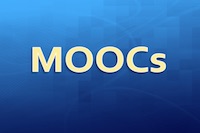MOOCS as Accelerators of Social Mobility? A Systematic Review
 Due to their perceived scope and openness to socially underprivileged groups, Massive Open Online Courses (MOOCs) have been presented as tools to enhance social mobility. However, there has also been evidence to suggest that MOOCs are mainly beneficial for privileged groups and could even contribute to an increasing gap in educational opportunities between privileged and underprivileged populations. This systematic review has evaluated 31 empirical studies to examine how MOOCs benefit the socially privileged in comparison to underprivileged groups. The literature has pointed out specific formal barriers that might make MOOCs less accessible for underprivileged learners. In addition, enrollment demographics displayed that the majority of MOOC learners is well educated, employed and from developed countries. Finally, the literature suggested that privileged learners could be more likely to complete a MOOC. Nevertheless, the literature indicated a notable share of underprivileged learners that would otherwise not enjoy higher education. Moreover, it is suggested that certain MOOCs might serve underprivileged learners more than other MOOCs. The implications of these findings and recommendations for future research will be discussed.
Due to their perceived scope and openness to socially underprivileged groups, Massive Open Online Courses (MOOCs) have been presented as tools to enhance social mobility. However, there has also been evidence to suggest that MOOCs are mainly beneficial for privileged groups and could even contribute to an increasing gap in educational opportunities between privileged and underprivileged populations. This systematic review has evaluated 31 empirical studies to examine how MOOCs benefit the socially privileged in comparison to underprivileged groups. The literature has pointed out specific formal barriers that might make MOOCs less accessible for underprivileged learners. In addition, enrollment demographics displayed that the majority of MOOC learners is well educated, employed and from developed countries. Finally, the literature suggested that privileged learners could be more likely to complete a MOOC. Nevertheless, the literature indicated a notable share of underprivileged learners that would otherwise not enjoy higher education. Moreover, it is suggested that certain MOOCs might serve underprivileged learners more than other MOOCs. The implications of these findings and recommendations for future research will be discussed.







